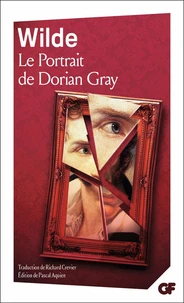
Oscar Wilde est né à Dublin, en Irlande. Son père est chirurgien, sa mère est poétesse et traductrice d'auteurs français (Dumas et Lamartine). Il fait ses études au Trinity College de Dublin puis à Oxford, en Angleterre. Grâce à son élégance et à sa vivacité d'esprit, il devient vite un auteur très apprécié en Grande-Bretagne, mais aussi en France où il est salué par les milieux littéraires. Ses poésies, ses contes, ses histoires, son roman ("Le Portrait de Dorian Gray") et ses pièces de théâtre - dont l'une "Salomé" est écrite en français, est créée par Sarah Bernhardt - assurent son succès. Il est alors reconnu comme le chef de file de ce que l'on a appelé "le culte esthétique" : extrême raffinement, amour exclusif des belles choses, attitude détachée. Mais sa vie bascule en 1895 ; lorsqu'il est condamné à deux ans de travaux forcés dans une Angleterre victorienne très puritaine. Refusant de fuir, il purge sa peine et sort brisé du bagne. Il est désormais un homme ruiné, exclu de la société. Il finit misérablement sa vie à Paris où il meurt le 30 novembre 1900, à 46 ans d'une méningite. Ses derniers mots, dans une chambre d'hôtel au décor miteux (hôtel d'Alsace, 13, rue des Beaux-Arts à Paris) auraient été : "Ou c'est ce papier peint qui disparaît, ou c'est moi".






















